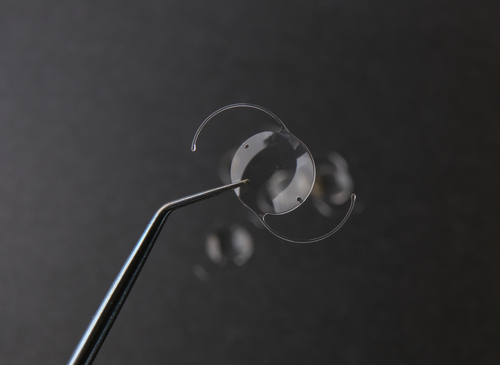How Do I Choose an IOL for Cataract Surgery?
July 11, 2024
Cataracts are a common eye condition that affects millions of people, especially as they age. If you've been diagnosed with cataracts, you may be wondering about your treatment options.
The good news is that cataract surgery is a safe, effective way to restore clear vision. A key part of the surgery is choosing the right intraocular lens (IOL) to replace your cloudy natural lens.
With so many IOL options available today, the choice may seem overwhelming at first. Understanding the different types of IOLs and their benefits is an important step in preparing for your cataract surgery.
Keep reading to learn more about IOLs and how to choose one for cataract surgery!
What Are Cataracts?
Cataracts occur when the clear lens of the eye becomes cloudy, and it feels like looking through a foggy window. The most common cause of cataracts is aging, so it is common for people aged sixty and over to have some clouding of the lenses because the eye proteins start breaking down. 
Other factors that may contribute to cataracts are genetics or being a diabetic or a smoker. Once a person is diagnosed with cataracts, it may be managed at first with stronger lighting and an updated glasses prescription, but eventually, that person’s vision will become impaired.
Cataracts can make things look blurry, cause difficulty seeing at night, and eventually interfere with daily activities. Cataracts are the leading cause of blindness in the world.
The good news is that cataract surgery is a common, safe, and effective treatment. Cataract surgery involves removing a person’s cloudy, damaged eye lens and replacing it with a new state-of-the-art intraocular
lens.
How Do I Know What Kind of IOL I Need?
The first step in choosing an IOL is setting up an appointment for an eye exam with an experienced eye doctor, such as the ones at SIEHT. Your eye doctor will examine your eyes, take your medical history, and discuss your options for treating your cataracts.
Once you’ve decided to have cataract surgery, your eye doctor will talk to you about the replacement lens options available. At SIEHT, there are several choices available for patients to maximize their cataract surgery success.
Cost, lifestyle, and other factors may influence your decision to go with a monofocal or multifocal lens. Our experienced team will walk through options with you prior to surgery.
What Types of Intraocular Lenses Can I Choose From?
Taking into account a person’s lifestyle and visual needs helps an eye doctor decide what kind of intraocular lens is right for each individual patient.
Monofocal IOLs
A monofocal lens is the most common kind of intraocular lens. It will correct vision at one distance, either for near or far vision.
Often, people who use monofocal IOLs get them for distance vision and use reading glasses for up-close tasks. People who play sports frequently may prefer a monofocal IOL that focuses on distance vision.
This allows them to clearly see the field, court, or other distant objects without glasses while playing sports.
Multifocal IOLs
Multifocal lenses are a newer, premium type of intraocular lens (IOL) that may not be fully covered by insurance. These advanced lenses can correct both far and near vision, with some even correcting intermediate vision.
Patients who choose multifocal or premium lenses often find that they are able to reduce their dependence on glasses or contact lenses after cataract surgery, saving money on supplies and replacements over the years. However, results may vary from person to person.
 Presbyopia is a common condition affecting most people over the age of forty. It makes it difficult to see up close without the aid of bifocals, trifocals, or reading glasses.
Presbyopia is a common condition affecting most people over the age of forty. It makes it difficult to see up close without the aid of bifocals, trifocals, or reading glasses.
Those with presbyopia often find themselves holding reading materials at arm's length to focus properly. For individuals with presbyopia, multifocal lenses are an excellent option for restoring clear vision.
At SIEHT, our cataract surgeons offer patients several multifocal lens options. We are proud to offer the AcrySof® IQ PanOptix® Trifocal Lens, the first trifocal lens available in the United States.
Compared to older monofocal IOLs, the AcrySof® IQ PanOptix® provides enhanced near, intermediate, and distance vision, effectively reversing the effects of presbyopia. This exceptional trifocal IOL offers patients an impressive range of vision.
We also offer the AcrySof™ IQ Vivity™ lens, the latest extended depth of focus (EDOF) IOL that delivers excellent distance and intermediate vision while minimizing halos and glare. This exceptional lens is also available in an EDOF Toric version for patients with astigmatism and is considered one of the most advanced EDOF intraocular lenses available worldwide.
Schedule a Cataract Evaluation
What if I Have Astigmatism?
Astigmatism is a common refractive error that occurs when the cornea or the natural lens inside the eye has an irregular shape. Instead of being spherical like a basketball, an eye with astigmatism has a cornea or lens that is shaped more like a football.
This causes light to focus at different points on the retina, resulting in blurred or distorted vision at all distances. At SIEHT, our cataract surgeons offer astigmatism-correcting lens options known as Toric IOLs and will let you know if they think you might benefit from this type of lens. 
Toric IOLs can correct astigmatism at the same time as cataract surgery or lens replacement, eliminating the need for additional procedures. Our cataract surgeons also use advanced technology, such as the ORA system, in combination with Toric lenses to provide our patients with the best possible astigmatism correction.
ORA allows your eye doctor to take real-time measurements of the eye during cataract surgery, ensuring precise lens alignment for optimal results. Like monofocal and multifocal IOLs, Toric lenses are implanted during cataract surgery.
Do you want to learn more about IOLs or need help determining which type may be right for you? Schedule an appointment at SIEHT in Fredericksburg or Stafford, VA, today!



